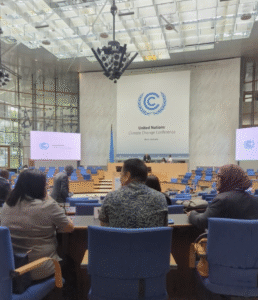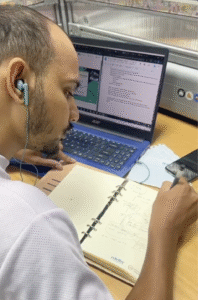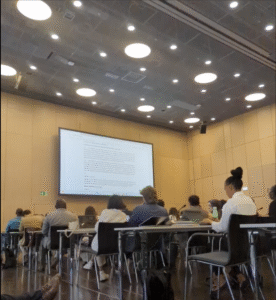Written by: Yashirdisai Sampasivam
Edited by: Kieran Nair and Hanis Alwani
The 62nd Session of the Subsidiary Bodies (SB62) was held in Bonn in June 2025. Unlike the Conference of the Parties (COP), which is the main political decision making conference, the SB sessions function as technical and preparatory meetings. They bring together the Subsidiary Body for Scientific and Technological Advice (SBSTA) and the Subsidiary Body for Implementation (SBI), where Parties advance negotiations on key agenda items that will later be elevated for adoption under the COP, the CMA (Parties to the Paris Agreement), or the CMP (Parties to the Kyoto Protocol). At SB62, the agenda spanned a wide range of issues including Article 6 cooperative approaches, climate finance, adaptation, transparency frameworks, and capacity building.
In addition to the formal negotiations, SB62 also hosted mandated intersessional and capacity building events tied to previous COP and CMA decisions. These events are designed to help Parties and observers deepen their understanding of technical agenda items and to provide a space for dialogue on how implementation can be scaled up. For example, there was an Article 6.2 Ambition Dialogue, organized as part of the capacity building programme requested under decision 4/CMA.6. This dialogue was mandated to take place alongside SBI sessions and served as a platform for Parties and observers to exchange information and experiences on how cooperative approaches support ambition. For me, the main focus remained on following the Article 6.2 discussions and related finance tracks, as these issues sit at the core of current negotiations on carbon markets and the financial mechanisms needed to support implementation.
Virtual tracking of SB62 was made possible through the United Nations Framework Convention on Climate Change (UNFCCC)’s online platform, which requires registration via email. Once registered, participants could access mandated events, although the level of access was still restricted compared to being there on the ground. Side events, coordination meetings, and some negotiations remained out of reach, and even for mandated events, recordings were inconsistent. While some sessions were uploaded, most negotiations and intersessional discussions were only available live and could not be revisited afterwards. This limited accessibility posed challenges for deeper engagement, but the platform nonetheless provided a practical way to follow the negotiations without the financial burden and emissions of international travel. It allowed observers to remain connected to the global climate process in real time, even from afar.
During the sessions, I took structured notes, jotting down not only the interventions but also my own reactions and questions. This habit allowed me to revisit discussions later and form a stronger basis for meaningful recommendations. Staying curious also mattered, since negotiation language can be technical and sometimes overwhelming; going back to my notes or reviewing documents afterwards helped me understand points that initially seemed unclear. Doing desktop research before the sessions was equally important by reviewing the background materials such as technical papers, agenda items, and previous decisions on the UNFCCC Documents Portal provided critical context and made it easier to follow the pace of negotiations.

Additionally, for added clarity and support, a number of online resources proved especially helpful. Firstly, the UNFCCC SB62 page hosted live webcasts, agendas, session documents, and announcements that made it possible to follow proceedings in real time, while the UNFCCC Documents & Resources portal allowed deeper searches across official decisions, Party submissions, NDCs, and session materials. The Earth Negotiations Bulletin (by International Institute for Sustainable Development) provided summaries and in-depth analysis of SB62 and previous COPs and SBs, stitching together the discussions into clear narratives of progress and challenges. Third party observers’ coverages, such as Eco Newsletter (by Climate Action Network) and that of Third World Network also really offered alternative perspectives that filled in what was missing from official notes. I also realised the importance of engaging with peers and networks where reaching out to colleagues attending in person or connecting with observer groups helped fill in gaps and broaden my perspective.
While virtual tracking cannot fully replicate the experience of being on the ground, it still offered meaningful insights when approached with discipline and preparation. For me, SB62 reinforced the importance of improving inclusivity in climate negotiations so that young people and stakeholders from developing countries, who may not always have the means to travel, can still meaningfully follow and engage with the process.



